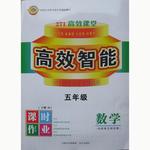题目内容
B. had we prepared
C. we have prepared
D. we had prepared

 高效智能课时作业系列答案
高效智能课时作业系列答案 捷径训练检测卷系列答案
捷径训练检测卷系列答案I was in my third year of teaching creative writing at a high school in New York, when one of my students, 15-year-old Mikey, gave me a note from his mother. It explained his absence from class the day before.
I had seen Mikey himself writing the note at his desk. Most parental-excuse notes I received were penned by my students. If I were to deal with them, I’d be busy 24 hours a day.
The forged excuse notes made a large pile, with writing that ranged from imaginative to crazy. The writers of those notes didn’t realize that honest excuse notes were usually dull: “Peter was late because the alarm clock didn’t go off.”
Isn’t it remarkable, I thought, how the students complained and said it was hard putting 200 words together on any subject? But when they produced excuse notes, they were brilliant.
So one day I typed out a dozen excuse notes and gave them to my classes. I said, “They’re supposed to be written by parents, but actually they are not. True, Mikey?” The students looked at me nervously.
“Now, this will be the first class to study the art of the excuse note --- the first class, ever, to practice writing them. You’re so lucky to have a teacher like me who has taken your best writing and turned it into a subject worthy of study. ”
Everyone smiled as I went on, “You used your imaginations. So try more now. Today I’d like you to write ‘An Excuse Note from Adam to God’ or ‘An Excuse Note from Eve to God’.” Heads went down. Pens raced across paper. For the first time ever I saw students so careful in their writing that they had to be asked to go to lunch by their friends.
The next day everyone had excuse notes. Heated discussions followed. The headmaster entered the classroom and walked up and down, looking at papers, and then said, “I’d like you to see me in my office.”
When I stepped into his office, he came to shake my hand and said, “I just want to tell you that that lesson, that task, whatever the hell you were doing, was great. Those kids were writing on the college level. Thank you. ”
【小题1】What did the author do with the students found dishonest?
| A.He reported them to the headmaster. | B.He lectured them hard on honesty. |
| C.He had them take notes before lunch. | D.He helped improve their writing skills. |
| A.less impressive | B.more imaginative | C.worse written | D.less convincing |
| A.the importance of being honest | B.how to write excuse notes skillfully |
| C.the pleasure of creative writing | D.how to be creative in writing |
| A.former | B.copied | C.false | D.honest |
| A.Effective. | B.Difficult | C.Misleading. | D.Reasonable |
I was in my third year of teaching creative writing at a high school in New York, when one of my students, 15-year-old Mikey, gave me a note from his mother. It explained his absence from class the day before.
I had seen Mikey himself writing the note at his desk. Most parental-excuse notes I received were penned by my students. If I were to deal with them, I’d be busy 24 hours a day. The forged excuse notes made a large pile, with writing that ranged from imaginative to crazy. The writers of those notes didn’t realize that honest excuse notes were usually dull: “Peter was late because the alarm clock didn’t go off.”
Isn’t it remarkable, I thought, how the students complained and said it was hard putting 200 words together on any subject? But when they produced excuse notes, they were brilliant.
So one day I typed out a dozen excuse notes and gave them to my classes. I said, “They’re supposed to be written by parents, but actually they are not. True, Mikey?” The students looked at me nervously.
“Now, this will be the first class to study the art of the excuse note --- the first class, ever, to practice writing them. You’re so lucky to have a teacher like me who has taken your best writing and turned it into a subject worthy of study. ”
Everyone smiled as I went on, “You used your imaginations. So try more now. Today I’d like you to write ‘An Excuse Note from Adam to God’ or ‘An Excuse Note from Eve to God’.” Heads went down. Pens raced across paper. For the first time ever I saw students so careful in their writing that they had to be asked to go to lunch by their friends.
The next day everyone had excuse notes. Heated discussions followed. The headmaster entered the classroom and walked up and down, looking at papers, and then said, “I’d like you to see me in my office.”
When I stepped into his office, he came to shake my hand and said, “I just want to tell you that that lesson, that task, whatever the hell you were doing, was great. Those kids were writing on the college level. Thank you. ”
【小题1】What did the author do with the students found dishonest?
| A.He reported them to the headmaster. | B.He lectured them hard on honesty. |
| C.He had them take notes before lunch. | D.He helped improve their writing skills. |
| A.less impressive | B.less convincing | C.worse written | D.more imaginative |
| A.the importance of being honest | B.how to be creative in writing |
| C.the pleasure of creative writing | D.how to write excuse notes skillfully |
| A.false | B.copied | C.former | D.honest |
| A.Misleading. | B.Difficult | C.Effective. | D.Reasonable. |
I had been rather proud of myself when my friends and family got the ticket,whether it was for speeding,parking or stop sign violations (违反).It was something that happened to others. But last Friday I joined the club.
I was asked to do a new project last week. On Friday morning on my way to work,I suddenly remembered that I had spent the past six weeks without considering that I had a week’s vacation planned during that time. I was very disappointed with myself for not remembering it.
The truth is that I was not paying enough attention to my driving and I did not come to a complete stop at the stop sign in front of a school. I was so distracted (思想不集中的)that I didn’t even notice I had a policeman on my tail with his lights flashing. Finally I looked in my mirror and caught on.
The policeman was rude and took my papers. Fortunately,I had everything up to date and since I had never had a ticket before,there was nothing for him to do but write me a ticket. While I was sitting there in the seat of “shame”,I felt bad. If I had been that distracted and a child had run onto the road,perhaps I would have not reacted as well as I could have. It was a wake-up call.
People at work asked me if I tried to talk my way out of it. Frankly,it never occurred to me. I felt guilty. Now I no longer have a clean driving record. Please be careful out there,as a moment’s distraction can lead to tragedy.
1.What is this passage mainly about?
|
A.The writer’s most unforgettable experience. |
|
B.How the writer got her first ticket. |
|
C.An accident caused by the writer. |
|
D.Why the writer is always so careful. |
。
2.We can infer that the underlined part “the club” in Paragraph 1 here refers to ________.
|
A.people who are crazy about driving cars |
|
B.a club for drivers without much experience |
|
C.people who get tickets for breaking traffic rules |
|
D.a club for people to talk about their driving stories |
3.What made the writer unable to focus on her driving?
|
A.Planning how to spend the vacation. |
|
B.Thinking of the forgotten vacation. |
|
C.Thinking about her work. |
|
D.Missing her children. |
4.From the experience,the writer has probably learnt ________.
|
A.what is really important to her |
|
B.how to deal with policemen |
|
C.to enjoy the small things in life |
|
D.to be much more careful |